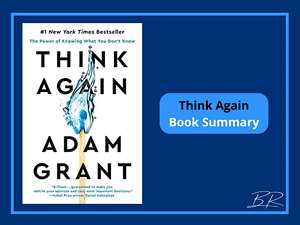How am I complicit in creating the conditions I say I don’t want
This post contains affiliate links that help supports this blog and cost you the exact same. If you do not wish to use affiliate links, then feel free to google the product.
Each and every day, I try to reflect on what went well, what didn’t, and how I can improve myself and my day. By continuously auditing and adjusting my life, I can do more of what I love, like engineering, woodworking, fitness, blogging, and being the best husband I can be. However, constantly trying to perform at a high level in so many aspects of life comes at a cost.
It comes at the cost of leaving very minimal room to allow myself to be in situations that bring me down.
I am no different than most people. I have dreams and ambitions that I talk about and say I will start. But the weeks turn into months which turn into years, and still, many things never get started, let alone finished.
I often tell myself the same narrative of what I want yet never actually do it.
The same is true for the conditions in life I say I don’t want. I will complain about having to do this or having to do that. I will convince myself that if only I could start every day at a coffee shop, it would all be better. But the truth is, almost all of my life’s frustrations are within my control to change. I may not be able to eliminate them completely, but I could at least make them better.
The big question
When I find myself complaining and wishing things were different, I find the most powerful question I can ask is one of the 4 important questions Jerry Colonna wrote about. In particular,
How am I complicit in creating the conditions I say I don’t want?
By asking yourself this, you can get past the failure loop of wishing for change but doing nothing about it by recognizing most things are within your control. After that, you just have to choose whether or not what you truly desire is worth the price you need to pay.
And let me say, often it’s not worth the price. The great thing is when you actively decide the price is not worth the reward, you will feel much freer when you choose to stop pursuing that option.
You choose the hard.
At home, at work, in health, and in happiness. We all get to choose our hard. Whether we want to be fit or want to indulge in snack food, both are hard.
-
Being a jerk is hard, but being nice all the time is hard.
-
Being broke is hard, but being rich is hard.
-
Relying on someone is hard, but supporting someone is hard.
-
Staying where you are is hard, but growing is hard.
We all get to choose our hard.
Delayed reward
Often, the things that we say we want and the lifestyle we dream of is within our reach.
The reason why we often chose the immediately easier path is that a better long-term path requires more effort upfront. It takes us saying no to the marshmallow today for the reward of two tomorrow. Having more of what we want in life requires us to say no to the immediate, easy, and gratifying options and say yes to the hard work and sacrifice. But saying yes to the hard work will compound, and it becomes easier and easier to do the hard work as it turns from a chore into a habit. And these positive habits have a way of opening opportunities in our lives.
So next time you are on your way to work wishing you didn’t have the hour-long commute at 5 am, or when your meal prepping for the family or hoping something was different, ask yourself how you are complicit in creating these conditions you say you don’t want.
How can you change the conditions you don’t want?
Once we realize so much is within our control to change we can stop wishing it was different and instead ask how we can make it different.
How can you change your schedule to get more sleep?
-
Can you start later and work later?
-
Can you do the first 2 hours from home and focus on deep work?
How can you adjust your eating to be healthy and have meal prep to take less time?
-
Can you order online via click-and-collect?
-
Can you subscribe to a meal delivery service?
-
Can you alternate cooking days with your partner?
How can you make more money in your current job without having to quit and “find someone else that values you”?
-
Can you ask your boss what responsibilities you can take on to make their life easier and bring more value to the company?
-
Can you sign up for a course that increases your knowledge and value?
Regardless of the conditions, you say you don’t want, there are often ways you are complicit in allowing them to continue. The good thing is there is almost always a simple solution to, at the very least, make them better, and perhaps even eliminate them altogether.
Next time you are frustrated in a situation or wishing for more, ask yourself, how am I complicit in creating the conditions I say I don’t want?







